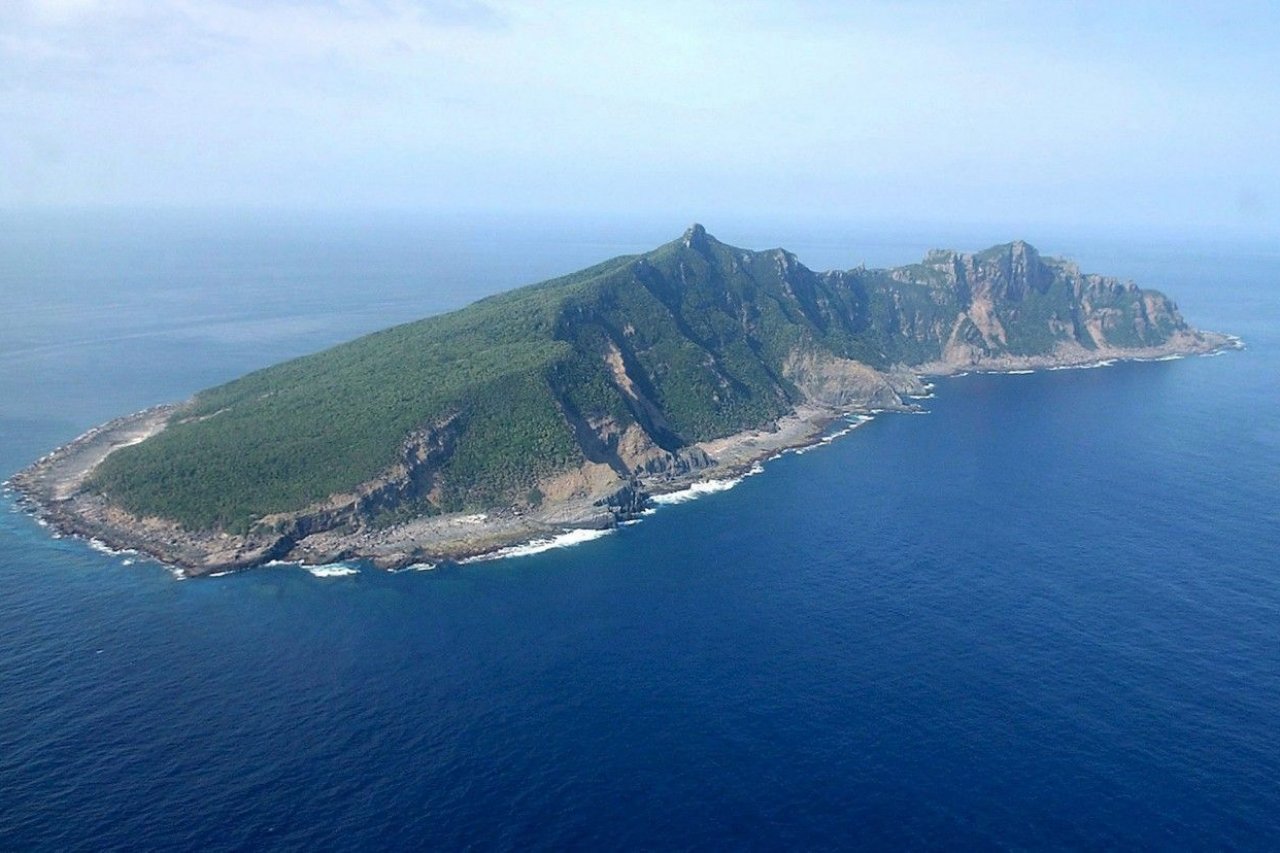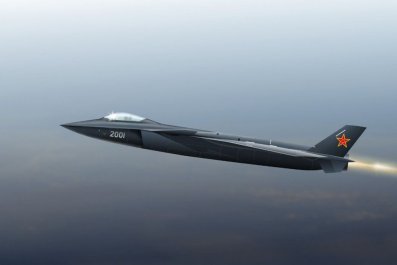This week's American military pushback against China will trigger a major crisis that could, as long promised by President Obama, force America to "pivot" much of its attention to Asia. Or it could be a one-shot action that will fizzle quickly, as did earlier attempts at rebalancing towards the Pacific.
On Monday, without notifying the Chinese authorities, two American B-52 bombers flew into a contested area over a chain of uninhabitable islands in the East China Sea where China and Japan have repeatedly clashed recently. This directly challenged a zone Beijing unilaterally set up just days before, as a Chinese official defined it, to "defend our airspace."
Beijing had declared the area an air defense identification zone (ADIZ), demanding that any aircraft must clear its flight pattern with Chinese authorities before flying into it. On Wednesday Japanese commercial airlines JAL and ANA defied China by flying their planes through the zone unannounced. No incidents were reported.
"It's the right of every country to defend its airspace," China's ambassador to the United Nations, Liu Jieyi, told me. Setting up an ADIZ is "a normal arrangement" in international affairs, he added. "Just imagine the reaction if Chinese jets [flew unannounced] over New York or Washington," he said. He insisted that the new Chinese-set zone does not restrict commercial flights.
Nevertheless, Liu cautioned against "making too much" of the flight of the B-52s. (In Beijing, officials said Wednesday that China monitored the U.S. bombers, but decided not to challenge them.)
While declining to describe the American maneuvers as a "provocation," Liu pointed to some of the larger issues underlying this incident, including the yawning gap between American military capabilities and those of China. "The U.S. is monitoring China constantly, using satellites and ships," he said. "We don't have such technology."
Meanwhile, Secretary of State John Kerry spoke on the phone with his Japanese counterpart, Fumio Kishida, on Monday, reiterating a public statement earlier in the week that said the Chinese decision to set up an air defense zone in the area "constitutes an attempt to change the status quo in the East China Sea." Secretary of Defense Chuck Hagel added his weight by delivering a similarly robust message.
In Tokyo, the new American ambassador to Japan, Caroline Kennedy, said in her first public remarks since arriving there two weeks ago that Beijing's "unilateral actions" will only "undermine security" in the region. In what was widely perceived as a signal of America's renewed commitment to its defense treaty with Japan, the Kennedy scion, who has achieved rock-star status in Japan since she was tapped as ambassador by Obama, visited a U.S. Air Force base earlier.
Although American officials have refrained from taking sides in the various territorial disputes in the East and South China Seas, Washington officials had made clear that the defense treaty includes an island chain in the area, known as Senakaku in Japanese and Diaoyu in Chinese. China considers the archipelago part of its territory, as does Taiwan. Tokyo, which has long administered the islands, also claims sovereignty.
"We are determined to defend our country's air and sea space," Japanese Prime Minister Shinzo Abe told the Japanese parliament in Tokyo on Monday. "The measures by the Chinese side have no validity whatsoever for Japan," he said.
Beyond the rhetoric, and America's show of force on Monday, many in the region wonder whether Beijing can be so easily deterred. Several Asia hands noted the timing of China's ADIZ announcement over the weekend. It came just as America's closest Middle Eastern allies expressed their dismay over an agreement with Iran, and following Obama's course reversal in Syria. China may have reacted to what it perceives as an American withdrawal from commitments to allies, they say.
More broadly, officials in the region wonder about the content of the Obama administration's declared policy of pivoting to Asia. Washington's intention to direct its attention to the Pacific region was announced in 2010, but has yet to materialize much beyond Washington's academic circles, they say. "Some of us have been wondering what the follow-through was going to be, and the fact is, there hasn't been much," one high-ranking East Asian diplomat said, asking for anonymity so he could speak freely.
Beijing, which harbors its own frustrations over an earlier unfulfilled Obama promise of a "strategic partnership" between America and China, has beefed up its military in recent years. More than some of his predecessors, President Xi Jinping has surrounded himself with military men and has increased military spending significantly.
Last year China started sending military and civilian vessels to Scarborough Shoal, a rocky islet 120 miles west of Subic Bay in the Philippines, which China claims as its territory. Manila at first sent naval vessels to challenge the intruders, but America, which is obliged to defend the Philippines in a defense treaty, declined to join battle. Instead, as China escalated its assaults, Washington tried to mediate. Eventually, after China threatened to cut off commercial ties, Manila gave up, and China now controls the area.
A similar scenario has started to gel in the group of East China Sea islands. Although uninhabitable, the atoll is rich in minerals, fishery, and oil. In recent years, and increasingly in 2013, Chinese military craft, sometimes disguised as fishing boats, entered the zone, prompting Japan to dispatch naval vessels to ward them off.
The confrontations with China have strengthened Japanese nationalism, as espoused by Abe. He, too, has increased investment in the military, even when attempting, under "Abe-nomics" to cut government spending elsewhere.
And then, over the weekend, China declared the airspace over the archipelago a zone in which all aircraft must coordinate their flights with Beijing in advance. The move was widely seen as the beginning of what some called a "great power clash of historic proportions," and a Chinese attempt to push America out of the region.
But will the American display of force be enough to deter further Chinese aggression? Yann-huei Song, a professor at Taipei's Academia Sinica, said that "since the U.S. had sent the signal to China already, the Pentagon will not do it again" for a while. Instead, he told me, Washington will now "wait and see how China reacts."
Beijing, he predicted, will try to "save face" by making bold statements. But it will decide on any further moves only after Japan and America make clear how they intend to react.
Taiwan's claim of sovereignty over the islands further complicates American policy in the region. Taipei's national security council issued a statement saying its claim to the islands is "unaffected" by Beijing's announcement and that it would "continue to defend our sovereignty over the archipelago."
A while back the Taiwanese president, Ma Ying-jeou, proposed a "peace initiative," calling for mediation between all the competing claimants. America's challenge, according to Song, would be "to maintain its neutral position on territorial sovereignty."
But Beijing may well use Taiwan, its old nemesis, to divide America's allies. Since Beijing has always seen Taiwan as part of China, never recognizing the island's sovereign aspirations, it could use Taipei's claim over the archipelago to further its attacks against Japan.
Critics of Obama's Asia policy in Washington doubt that Monday's action will change many minds in Asia. "If this is just one flight, it won't be enough," said Michael Auslin, an Asia scholar at the American Enterprise Institute.
He cited press reports, based on Pentagon sources, saying the unarmed B-52s made their sortie as part of a "routine," long-preplanned exercise named Coral Lightning. "We should have said that we flew there in order to directly challenge the Chinese ADIZ," said Auslin. America should also have added a Japanese military contingent to the sortie, he added.
Beijing's attitude, as one East Asian diplomat put it, is, "Push with a bayonet, and if you encounter fat, push harder." The big debate throughout the region and beyond is whether the American action on Monday was a firm enough response to China's aggression or whether is it merely "fat."
Follow Benny Avni on Twitter: @bennyavni

























